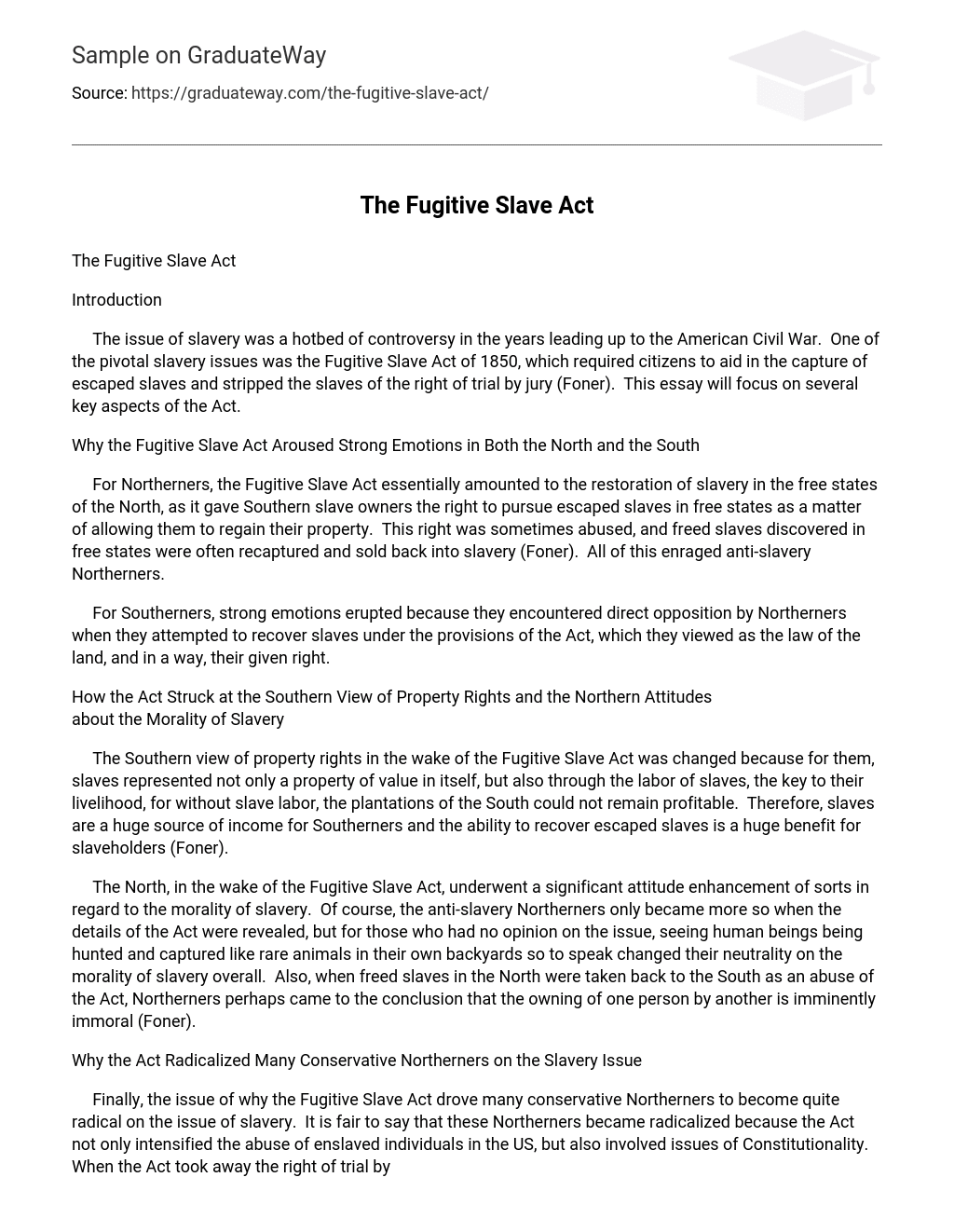Introduction
The issue of slavery was a hotbed of controversy in the years leading up to the American Civil War. One of the pivotal slavery issues was the Fugitive Slave Act of 1850, which required citizens to aid in the capture of escaped slaves and stripped the slaves of the right of trial by jury (Foner). This essay will focus on several key aspects of the Act.
Why the Fugitive Slave Act Aroused Strong Emotions in Both the North and the South
For Northerners, the Fugitive Slave Act essentially amounted to the restoration of slavery in the free states of the North, as it gave Southern slave owners the right to pursue escaped slaves in free states as a matter of allowing them to regain their property. This right was sometimes abused, and freed slaves discovered in free states were often recaptured and sold back into slavery (Foner). All of this enraged anti-slavery Northerners.
For Southerners, strong emotions erupted because they encountered direct opposition by Northerners when they attempted to recover slaves under the provisions of the Act, which they viewed as the law of the land, and in a way, their given right.
How the Act Struck at the Southern View of Property Rights and the Northern Attitudes
about the Morality of Slavery
The Southern view of property rights in the wake of the Fugitive Slave Act was changed because for them, slaves represented not only a property of value in itself, but also through the labor of slaves, the key to their livelihood, for without slave labor, the plantations of the South could not remain profitable. Therefore, slaves are a huge source of income for Southerners and the ability to recover escaped slaves is a huge benefit for slaveholders (Foner).
The North, in the wake of the Fugitive Slave Act, underwent a significant attitude enhancement of sorts in regard to the morality of slavery. Of course, the anti-slavery Northerners only became more so when the details of the Act were revealed, but for those who had no opinion on the issue, seeing human beings being hunted and captured like rare animals in their own backyards so to speak changed their neutrality on the morality of slavery overall. Also, when freed slaves in the North were taken back to the South as an abuse of the Act, Northerners perhaps came to the conclusion that the owning of one person by another is imminently immoral (Foner).
Why the Act Radicalized Many Conservative Northerners on the Slavery Issue
Finally, the issue of why the Fugitive Slave Act drove many conservative Northerners to become quite radical on the issue of slavery. It is fair to say that these Northerners became radicalized because the Act not only intensified the abuse of enslaved individuals in the US, but also involved issues of Constitutionality. When the Act took away the right of trial by jury, what it essentially did was undermine the US Constitution, and when this occurred, those in the North who perhaps were not very concerned with the issue of slavery became concerned when it began to possibly jeopardize their rights as American citizens as well (Foner). With such a possibility in place, radical action and mindset seemed to be the only way to preserve the rights of the free.
Works Cited
Foner, Philip S. History of Black Americans From the Compromise of 1850 to the End of the Civil War. Westport, CT: Greenwood Press, 1983.





